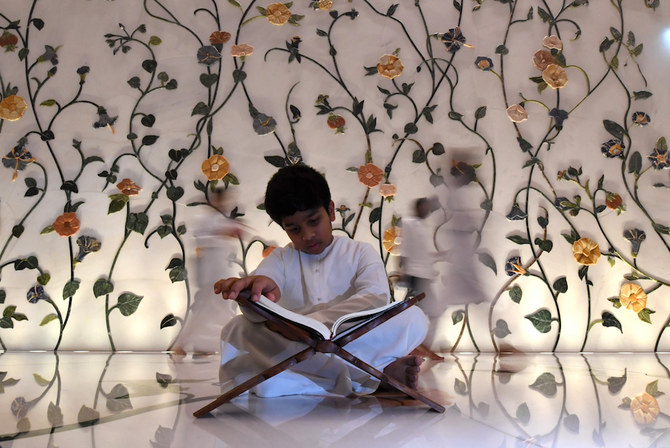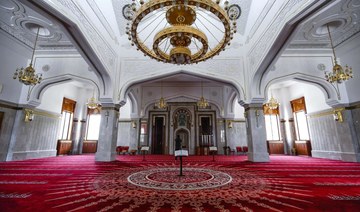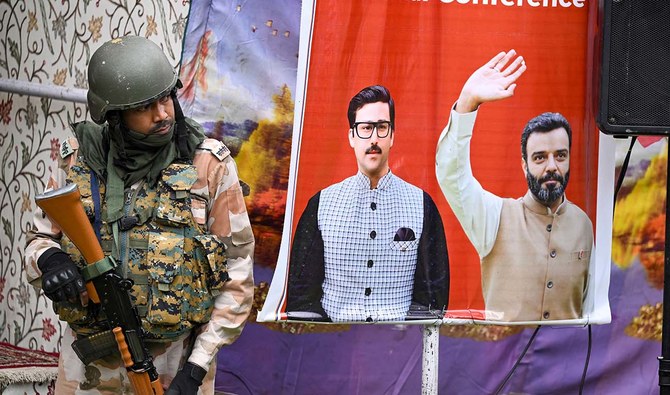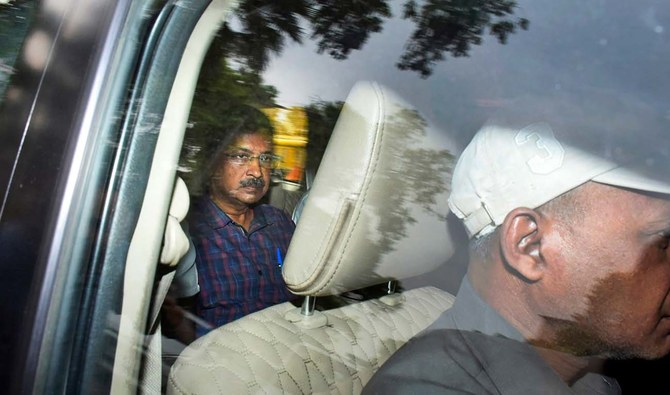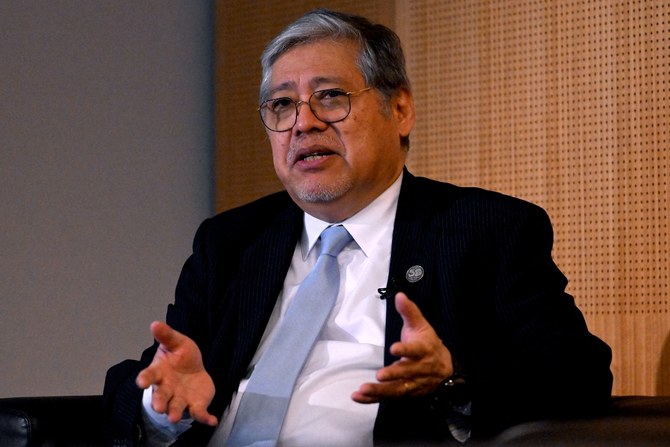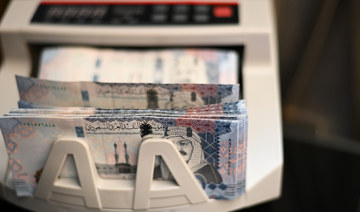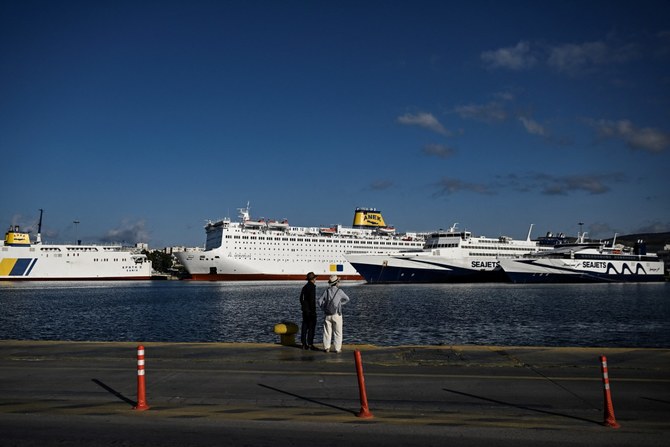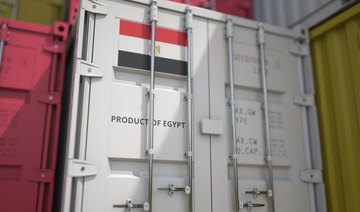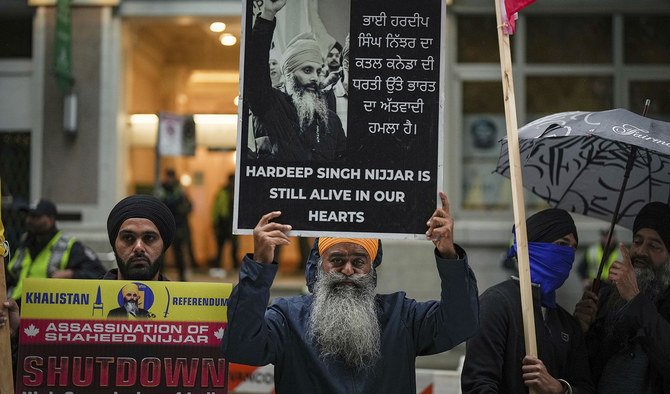RIYADH: Saudi Arabia and other Gulf countries have been forced to take strict precautionary measures to rein in the coronavirus disease (COVID-19) outbreak during Ramadan.
Sheikh Abdul Aziz Al-Asheikh, Saudi Arabia’s grand mufti, said people would have to perform Taraweeh and Eid prayers at home to prevent spreading the virus.
Oman’s Ministry of Endowments and Religious Affairs issued a statement prohibiting Taraweeh prayer in mosques with an exception for calls for prayer.
Kuwait’s Ministry of Awqaf and Islamic Affairs shared a video showing Sheikh Raed Al-Hazimi, the imam and khatib, explaining the importance of abiding by the measures.
“Allah Almighty wanted, through Islamic law, to preserve the five necessities in Islam: Religion, mind, property, honor and the self.
“If one of these necessities are threatened, exceptions will be made. The spread of this pandemic threatens the self, therefore, the fatwa from the Ministry of Awqaf and Islamic Affairs came to close mosques,” he said.
Egypt - Ramadan without Taraweeh
Laila Mohamed in Cairo: The COVID-19 precautionary health measures, which include the suspension of Friday prayers in mosques, have made for a somber Ramadan across Egypt.
“The decisions with regard to group prayers, including Taraweeh, were taken on the basis of scientific opinion of specialists from various medical institutions, on top of which are the Egyptian Ministry of Health and the World Health Organization,” Mohamed Gomaa, the Egyptian minister of endowments, said on Wednesday. “Both confirmed the dangers of praying in groups in transmitting COVID-19.”
Pointing out the legal basis on which the decision was made, he said: “Our noble religion taught us that the life of someone praying is more important than praying in a mosque, and that saving lives against all hazards is one of the essential aims of our noble religion.”
Abdel-Meguid Abdel-Aziz, a history researcher, said multiple accounts suggested that during the reign of Caliph Al-Aziz Bellah, the Fatimids canceled Taraweeh prayers in Egypt’s mosques for 10 years.
The Ministry of Endowments introduced a number of measures on Wednesday, one of them being that calls to prayer would be announced only in mosques and not in smaller congregational prayers.
Anyone caught violating the ministry’s instructions would be relieved from working in mosques, with no exception granted to even imams and staff.
Ahmed Shaker, 65, a former government employee, said that he was accustomed to offering Taraweeh prayers in mosques during Ramadan and retreating inside them during the last 10 days of the holy month for spiritual renewal, but this year he would pray for the pandemic to end.

Jordan - Qatayef to be available at local bakeries
Daoud Kuttab in Amman: The availability of popular Ramadan sweets matters a lot to Jordanians during the holy month.
Minister of State for Media Affairs Amjad Adaileh put consumers at ease when he said that local bakeries could sell the popular folded pancake called qatayef.
Government officials are trying their best to strike a balance between the restrictions placed on movement and the ability of people to enjoy Ramadan.
With large group prayers, iftar meals and Taraweeh prayers forbidden, local TV stations are expecting a quantum jump in viewing figures.
Zakaria Sheikh, owner of Amman-based Haqiqa Al-Dowalieh TV station, said a mix of Ramadan season programs had been planned.
“Our fare will include news and commentary on social and awareness programs, Palestinian news and cultural and religious quizzes,” he added.
Sheikh said Haqiqa Al-Dowalieh will air two Syrian-produced dramas to provide entertainment for families under lockdown.
Zeina Eltal, of Roya TV, said the focus of its Ramadan schedule would be social programs, especially the annual Roya comedy hour immediately following iftar.
“We will have a number of recurring popular programs such as ‘Watan Al-War’ and ‘Jalta.’ But we will also have new programs such as the premiere of ‘Our Family Life,’ which emphasizes traditional values in an entertaining way,” she added.
Cynthia Madanat Sharaiha, director of “Our Family Life,” said the show carried a message about the need for social cohesion in Arab families.
“During the current crisis, where families are stuck together all the time, our series addresses the challenges of family life such as communication between kids and family, marital relations and parenting issues,” she added.
“‘Our Family Life’ deals with how families react to issues such as modern technology and how a family can have a positive impact on neighbors and the local community.”

Turkey - Pandemic hits Ramadan traditions in Turkey
Menekse Tokyay in Ankara: Social-distancing measures adopted by Turkey mean Ramadan will be celebrated this year without the typical large meals shared with friends, relatives, neighbors, or the poor.
Turkey has banned mass meals during Ramadan as the number of COVID-19-related deaths soared.
To prevent large groups of people from gathering, political parties and municipalities have been prohibited from setting up tents for offering iftar and suhoor meals for free. Mosques have been shut for weeks now.
The sale of pide, a Turkish Ramadan traditional flatbread, is regulated by a government decree that requires people to maintain social distance in queues at bakeries. The selling time of this Ramadan-specific bread will end two hours before the iftar meal.
Citizens have also been banned from giving money to musaharaties, Ramadan drummers who walk through neighborhoods to remind people for their last meal before dawn.
Trips to cemeteries during Ramadan will be strictly regulated, with officials subjecting visitors to temperature checks.
“Moral depth and inner healing as well as fasting and Taraweeh prayers are fundamental to Ramadan, and these cannot change,” Dr. Necdet Subasi, a sociologist of religion, told Arab News.
However, new ways to socialize will be discovered when Turks, who were used to observing Taraweeh prayers at mosques, begin to pray at home with their family members, he said.
“Ramadan-related activities will be more online this year, but the pandemic is unlikely to be an obstacle for Muslims who want to stay focused on their inner selves.”

Lebanon - Refugees stare hunger in the face amid lockdowns
Najia Houssari in Beirut: Lebanon’s citizens received a jolt on the eve of Ramadan as the US dollar’s buying rate touched 3,575 liras and its selling rate 3,625 liras at money changers, while the official rate remained 1,515 liras.
Banks in Lebanon are refusing to give customers their dollar deposits and have also stopped returning deposited funds.
The lira’s drop coupled with higher demand for foodstuffs during Ramadan has resulted in the doubling of prices of fruit and vegetables.
“This year, I’ll settle for only one dish a day, along with a salad and some soup,” said Samar Bakkar, a supermarket shopper in Beirut. “The Ramadan family gathering that happens every year will not take place because of the coronavirus. My husband has been receiving half pay for the past three months, so we cannot afford the luxuries we were used to.”
Zouheir Kibbi, general director of the Zakat Fund of Lebanon, feared donations would be hit due to the COVID-19 crisis.
“The need for help has increased to an unprecedented level. People who used to pay their zakat now tell us that they need help themselves, that their funds are trapped in banks and they do not know how to retrieve them.”
Kibbi, the head of the charity fund, which helps Palestinians in the occupied territories as well as Palestinian refugees in Lebanon, said: “People who support this fund have told us they might not be able to donate much because their financial situation has deteriorated. And these are just the big traders.”
Ghassan Ayoub, a member of the PLO’s political leadership, said Ramadan would be tough for Lebanon’s Palestinian refugee population, dispersed across 12 official camps and 11 other locations.
“Even before the coronavirus pandemic, the situation was hard in the camps. Jobs were virtually non-existent. We faced a crisis, with Palestinians forbidden from working,” he added.
Based on an official Lebanese-Palestinian census, around 175,000 refugees live in the camps.
There are 910,000 Syrian refugees in Lebanon who are registered with the UN High Commissioner for Refugees (UNHCR), and their circumstances are no better.
Abu Mohammed, who lives in a camp in the Bekaa Valley, said: “We used to eat only one meal in the afternoon because that is what we could afford. Nothing will change now. We will keep on eating one meal but at sunset for Ramadan. There’s no interaction between people in the tents.”
Lisa Abou Khaled, UNHCR spokesperson in Lebanon, said: “Three-quarters of Syrian refugees in Lebanon live below the poverty line. Their daily income does not exceed $4. Their situation has become harder with the COVID-19 crisis.”
She said the UNHCR helped 20 percent of Syrian refugees’ families with a monthly amount and provided food assistance to around 40 percent of refugees.
“Refugees suffer because the UNHCR’s resources are not enough. They have also been affected by the pandemic, which has caused donor countries to tighten their purse strings.”
Palestine - A return to community values
Daoud Kuttab in Amman: The arrival of Ramadan in the middle of the COVID-19 pandemic has forced major changes in how Palestinians celebrate the month, especially in the holy city of Jerusalem.
Sheikh Muhammad Hussein, the mufti of Palestine, said: “By the decision of the Islamic Waqf, there will be no mass prayers in Al-Aqsa Mosque, no mass iftar meals and even the task of sighting of the crescent to determine the beginning and end of Ramadan will be given only to specialists from the fatwa department and members of the Palestinian Astronomical Association.”
The Israeli Ministry of Health said shops in places with large Muslim populations would not be allowed to open between 6 p.m. to 3 a.m. during Ramadan.
Wasfi Kailani, executive director of the Hashemite Fund for the Restoration of Al-Aqsa Mosque and Dome of the Rock, said: “This is the first time in history that Islam’s third-holiest mosques will be closed for the entire month of Ramadan, which sees attendance sometimes surpassing 250,000 during Ramadan Fridays.”
Kailani praised the cooperation between the Islamic Waqf and the Orthodox Church in distributing packages and cash support to Jerusalem’s needy families, most of whom were also unemployed.
Taraweeh prayers would be broadcast online from Al-Aqsa Mosque on a daily basis, Waqf officials told Arab News.
Micky Rosenfeld, a spokesman for the Israeli police, said while Ramadan was an important month for Muslims, they must celebrate it this year in a minimal and responsible way. “We call upon all the public in the different communities to obey specific laws and regulations of the police and Ministry of Health so that we can keep everyone safe.”
Israel has allowed a maximum of 19 worshippers to meet at any location for religious prayer on the condition of social distancing.
Israeli officials issued fines of up to $1,200 to people who gathered at the Christian quarter to receive the holy fire during Easter. Many felt it was an early warning by Israeli health officials to discourage large gatherings.
“Ramadan has become the month of extravagance and huge meal banquets,” Ata Qaymari, a Jerusalem-based publisher, told Arab News. “The coronavirus pandemic will bring Ramadan back to its original values of modesty, prayers and meditation.”
France - Strong connections amid lockdowns
Randa Takieddine in Paris: More than 5 million Muslims in France will remain connected during Ramadan at a time of enforced physical separation.
Tarek Oubrou, imam of the mosque of Bordeaux, said that since all mosques were closed, Muslims in France could organize prayers and observe their Ramadan rituals in their homes.
He added that discussions and debates on social media platforms indicated that the Muslim community remained strongly connected amid the lockdown.
Oubrou noted that there were 1,000 students in the mosque’s religious school where they studied courses online.
Jamil Chalak, president of Radio Orient, told Arab News that the head of the French Council of the Muslim Faith (CFCM) and some other mosque imams, coordinated with the radio for Ramadan prayers.
He said that there would be more cultural and medical programs related to Islam on the radio station’s shows, which had a large audience among the Muslim community in Paris.
French President Emmanuel Macron expected mosques and places of prayer to remain shut until the beginning of June even if the number of COVID-19 cases showed a drop once lockdowns were lifted on May 11, said CFCM President Mohamed Moussaoui.
Kamal Kaptan, the rector of Lyon mosque, said that many virtual Ramadan events were likely to take place via Facebook, WhatsApp and Zoom since all mosques were now functioning online. “To help others, we have put in place a solidarity initiative of all the mosques in Lyon,” he told Arab News.
“There are approximately 30 mosques and Lyon has 100,000 Muslims, the second-largest Muslim community after Paris, with the third-largest being in Marseille. We invited Muslims to bring grocery supplies so we can prepare hot food for needy people who can come and collect their meals at the mosques.”
Japan - Muslims to avoid gathering in groups
Khaldon Azhari in Tokyo: The Muslim community in Japan will see a different Ramadan this year with all of the activities and gatherings of iftar, suhoor, taraweeh and tahajod being canceled or reduced due to mosque staff and family members forced to shelter in place.
“With COVID-19 infections surpassing 10,000 in Japan, more than 50 Muslim representatives from different organizations and individual Islamic scholars and scientists gathered via Zoom to discuss and analyze, from Islamic viewpoints as well as scientific background, the issues related to the virus,” a statement by the group said.
The group included the Japan Muslim Association, Islamic Center Japan, Hokkaido Islamic Society, Osaka Islamic center, Muslim Student Association Japan, Tokyo University Islamic Cultural Society, and the Arab Community in Japan, besides 30 other mosques and Islamic organizations.
Based on the opinion of the majority of participants, the statement requested all mosques and Muslim organizations in Japan to cooperate with authorities’ requests to avoid large gatherings at mosques such as iftar and Taraweeh prayers.
Arab and Muslim sources in Tokyo told Arab News Japan that Ramadan gatherings held by enthusiastic Muslims, would be canceled for iftar at various restaurants in Tokyo and other parts of Japan.
Prime Minister Shinzo Abe said the number of people stepping out in urban areas had fallen by more than 60 percent on weekdays and 70 percent at weekends. He added that the goal was to reduce human contact by 80 percent.
Muslim diplomatic sources in Tokyo said they had no plans to hold iftars, while Tokyo mosques issued statements canceling Ramadan activities.






